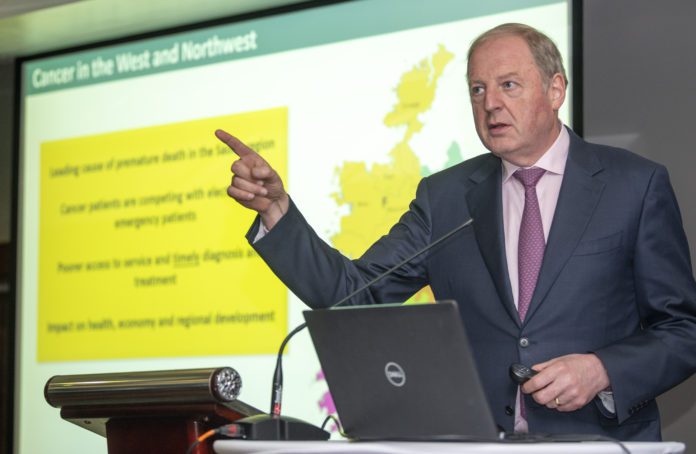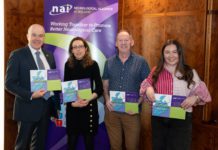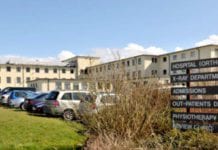
Cancer treatment in Ireland is an “Eircode lottery” with the west and northwest at a severe disadvantage a recent conference in Galway heard.
Prof. Michael Kerin, Director of Saolta-University Cancer Care Network, said that cancer patients in the west are competing with emergency care patients on a daily basis in overcrowded facilities.
The conference held at the Clayton Hotel by Cancer Care West and the National Breast Cancer Research Institute addressed the proposed cancer centre on the UHG campus.
Prof. Kerin, said: “The West and Northwest of Ireland are the most disadvantaged and geographically dispersed with the highest incidence and mortality from cancer.”
“The only Model 4 hospital in our region is overcrowded and cancer patients are competing with emergency patients for beds and services daily.”
“The lack of fit-for-purpose facilities means patients do not get the necessary care they need. Some patients are diagnosed too late to receive the appropriate care they could have received if diagnosis had been earlier.”
“In a modern, advanced country like Ireland, your outcome from cancer should not depend on where you live.”
“Cancer care in Ireland is an eircode lottery – we know what is required to solve this problem and that solution is already on the National Development Plan”
The event said heard that three projects on the grounds of UHG are currently at the Strategic Assessment Report stage.
These should be integrated into a single comprehensive project that will deliver a functional cancer “hospital within a hospital” in Galway.
This could be delivered within five years if a design team is appointed immediately by the Department of Health, attendees at the event heard.
The project needs to be fast tracked in line with Sláintecare proposals and the National Cancer Strategy target of a 3% reduction in population inequalities for cancer incidence and survival by 2026.











